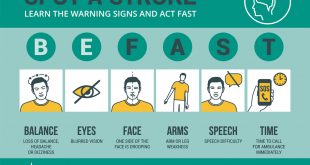By Alan Miller, MD, FACS –


Facts About Prostate Cancer
In the United States, more than 200,000 men are diagnosed each year, making prostate cancer the most common non-skin cancer in men. It primarily attacks older men, but there is a lifetime risk of one cancer for every six men by the time you reach 79 years old. Prostate Cancer accounts for ten percent of all cancer-related deaths before the age 70 and about twenty-five percent of all cancer-related deaths in men over 80. Worldwide, prostate cancer is the third most common cancer in men and the sixth most deadly.
Genetics and Environment Play a Significant Role
Genetics and environment both play significant roles in a man’s risk of developing prostate cancer. Your risk rises by a factor of ten if a member of your immediate family has a history of prostate cancer. Weight, diet and ethnicity are also important risk factors for developing prostate cancer. Obesity, consumption of a typical high fat, western-type diet and being of African American heritage all increase a man’s risk of developing prostate cancer.
Excellent Screening Tools Help Diagnose Prostate Cancer Early
Prostate cancer growth is silent and resolute, like a nuclear submarine. This makes prostate cancer difficult to find and deadly to miss. Fortunately, there are excellent screening tools available to help your doctor diagnose prostate cancer. These wonderful tools have been gleaned from extensive ongoing research that began over a decade ago. The best part is that prostate cancer is highly curable when caught early. The corner stones for diagnosis are a blood test for PSA and a physical examination of your prostate conducted by your doctor. Science has also developed several new tests to improve the accuracy of these corner stone tests. In fact, your doctor can now look into the DNA of prostate cells to help diagnose prostate cancer and to determine the chances of cure from treatment.
Exciting Advances and Lifesaving Research
There have been many new and exciting advances in the war against both early and late (advanced) prostate cancer. These new treatments minimize the side effects and maximize the benefits. For example, robotic surgery has enabled patients to be discharged from the hospital and return to an active lifestyle sooner than more traditional surgery. Ongoing research in strengthening the immune system to fight cancer has had a powerful impact on the treatment of prostate cancer patients. Provenge is the most recent example of the spectacular advances being made in immune system therapies. Immune therapy with Provenge has been proven to prolong the lives of patients diagnosed with advanced prostate cancer. Recent advances in chemotherapy and diagnostic testing have also led to improved quantity and quality of life for patients with all stages of prostate cancer. The best news of all is that this research is ongoing, productive and lifesaving.
The Risk of Not Being Screened
The recent controversy in the news about prostate cancer screening should not discourage you from being tested. Screening programs help to detect cancer while it is still curable. Identifying and treating prostate cancer is a very important aspect of your overall health. The decision to screen should be individualized based on your medical history and risk factors. This is a decision best made between you and your doctor. Without screening, you risk not being diagnosed until your cancer is more advanced and no longer curable.
One of Best Cancer Screening Tools
The task force recommendations not to screen for prostate cancer are problematic for several reasons. Their conclusions are based on flawed data and do not take into account your personal risk of developing prostate cancer. More importantly, they undermine the impressive changes in the face of prostate cancer that have taken place in the era of PSA testing. Screening has led to a whopping 49% decrease in the diagnosis of advanced prostate cancer and an equally impressive 29% decrease in deaths from prostate cancer. PSA remains one of the best cancer screening tools available.
Your Best Defense!
Your best defense, if you haven’t already guessed, is to get yourself screened by scheduling a visit with your family doctor or local urologist for a prostate exam and a PSA blood test. The good news is that, at this time of year, a lot of them are free. So, what are you waiting for?
To learn more or to schedule an appointment for a prostate cancer screening, please call Urology Partners at 941-792-0340 or visit us online at www.urologypartners.com.
 Southwest Florida's Health and Wellness Magazine Health and Wellness Articles
Southwest Florida's Health and Wellness Magazine Health and Wellness Articles

